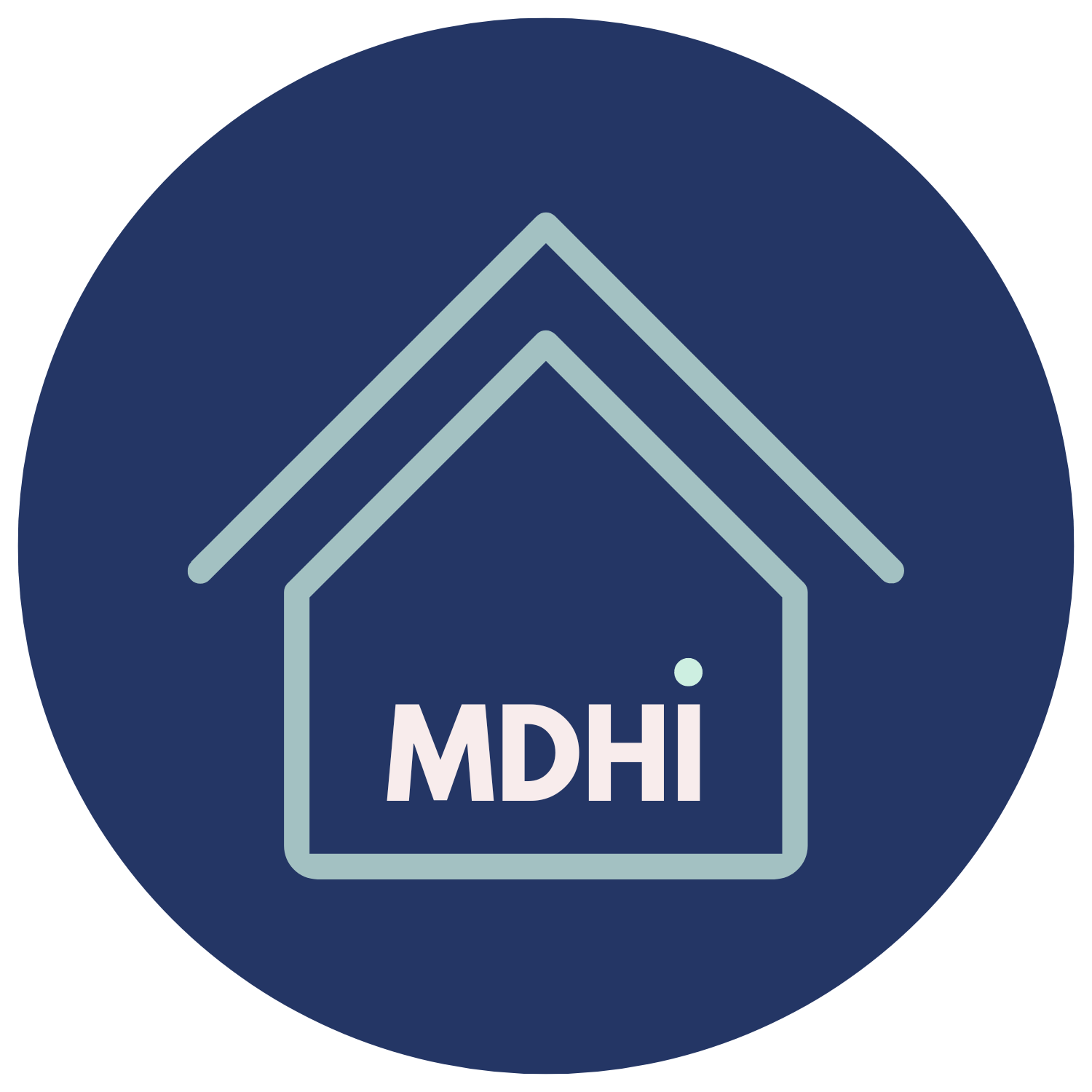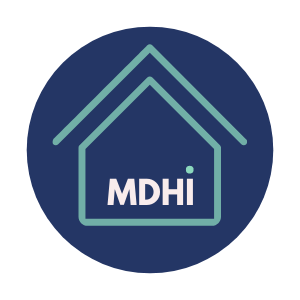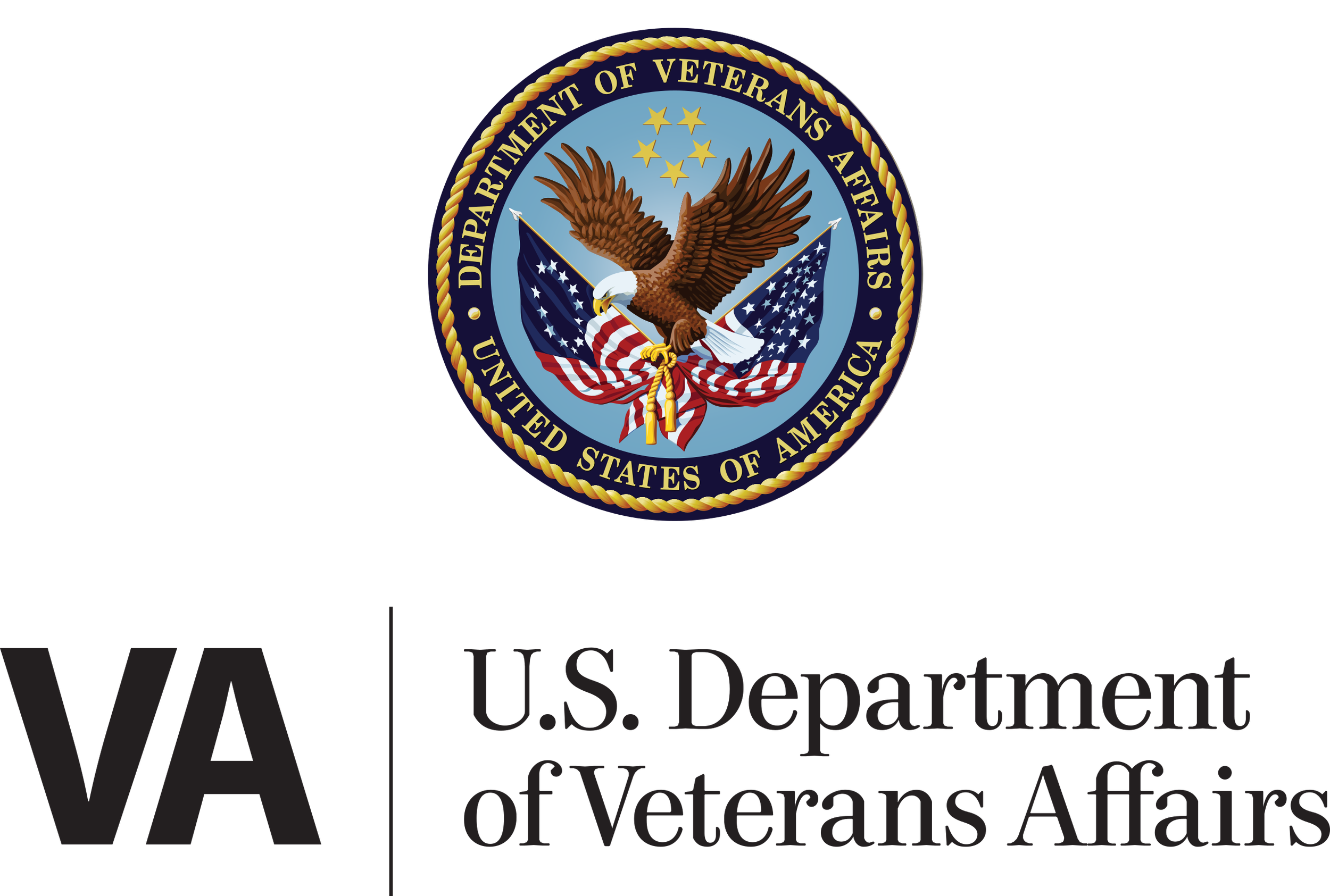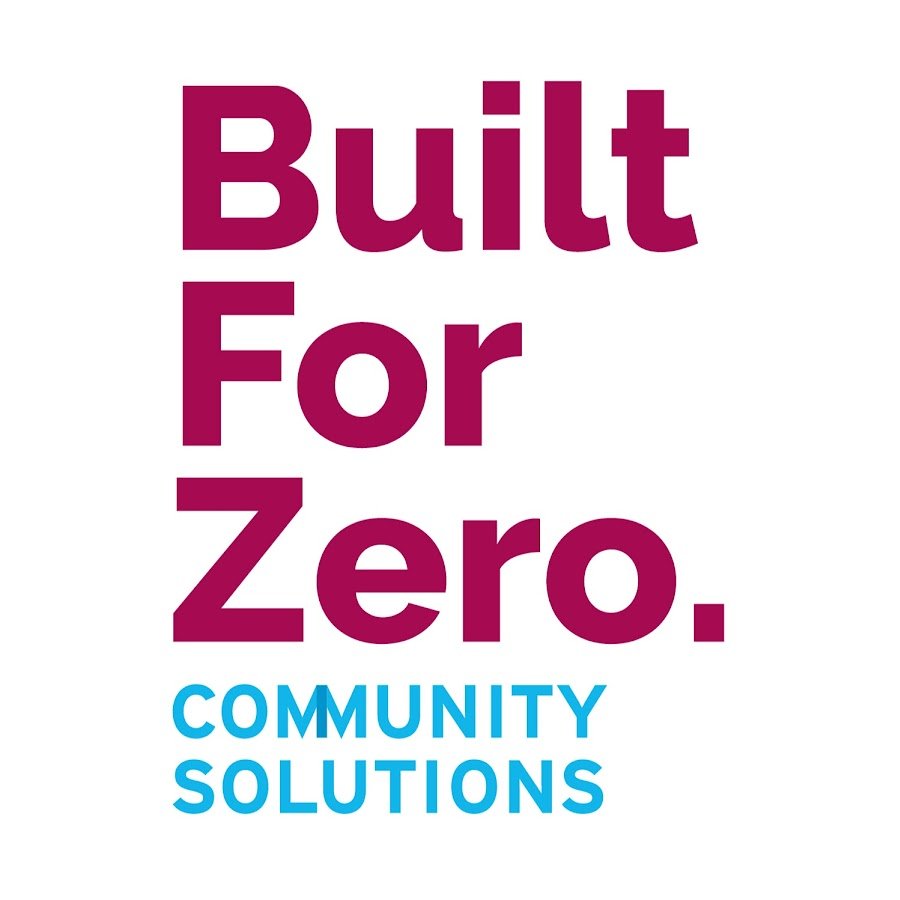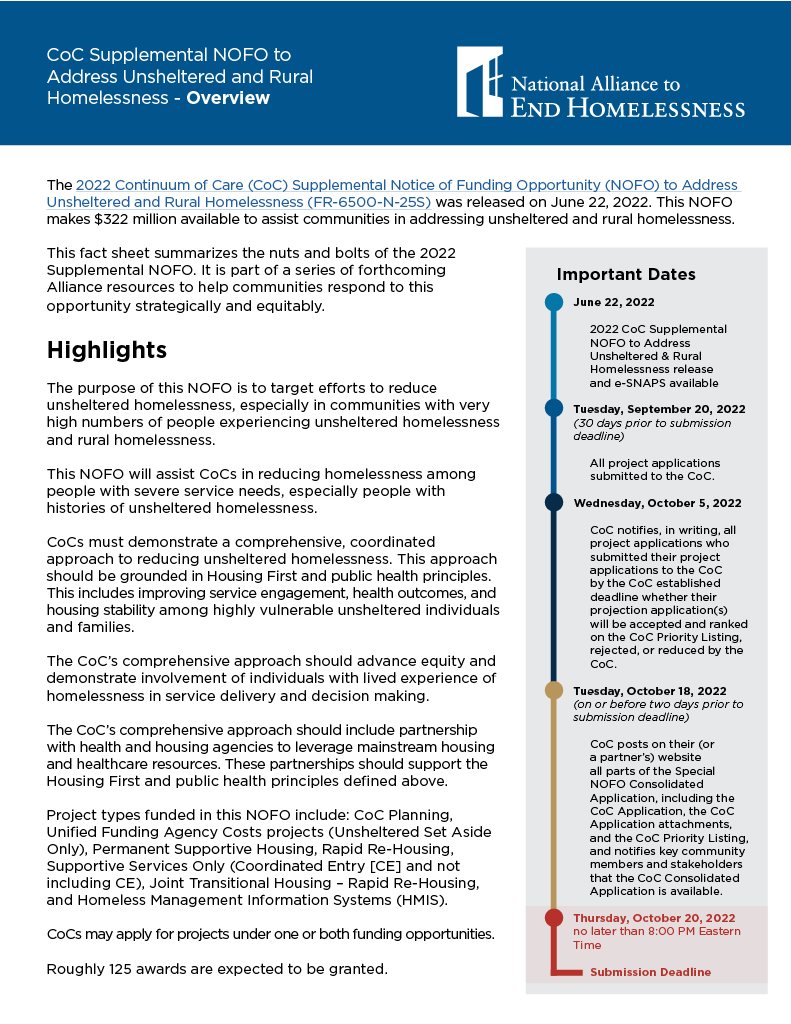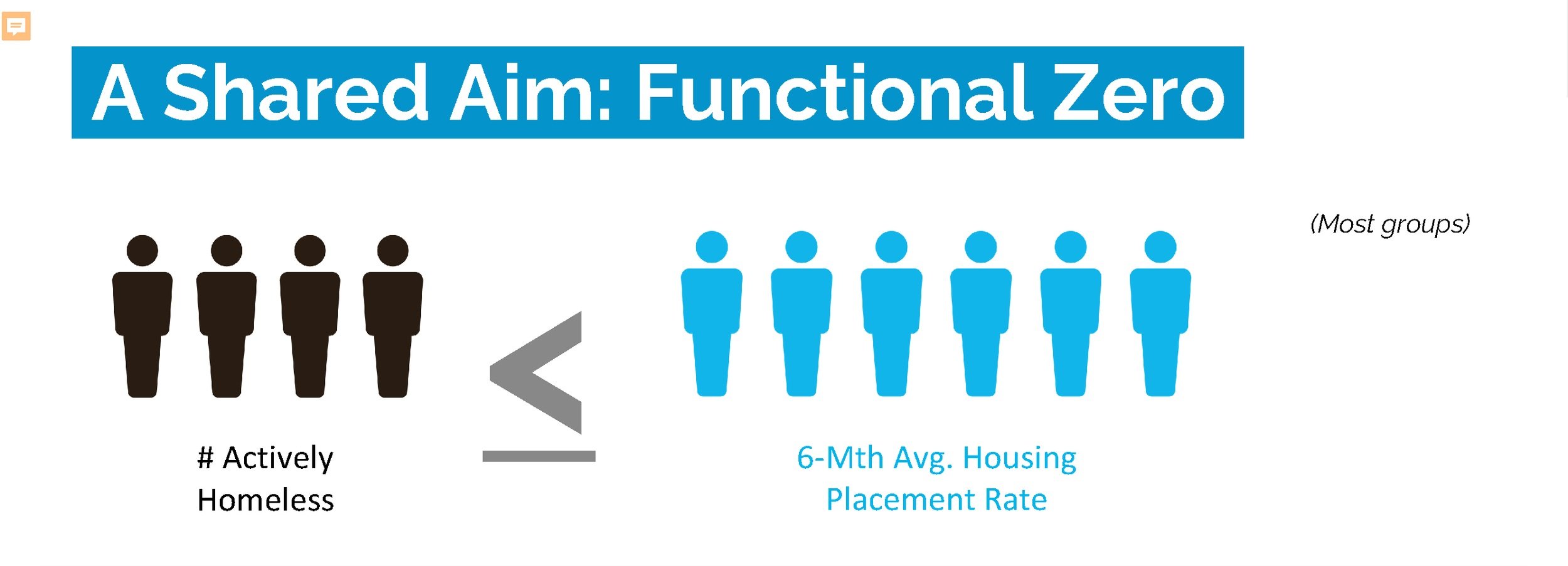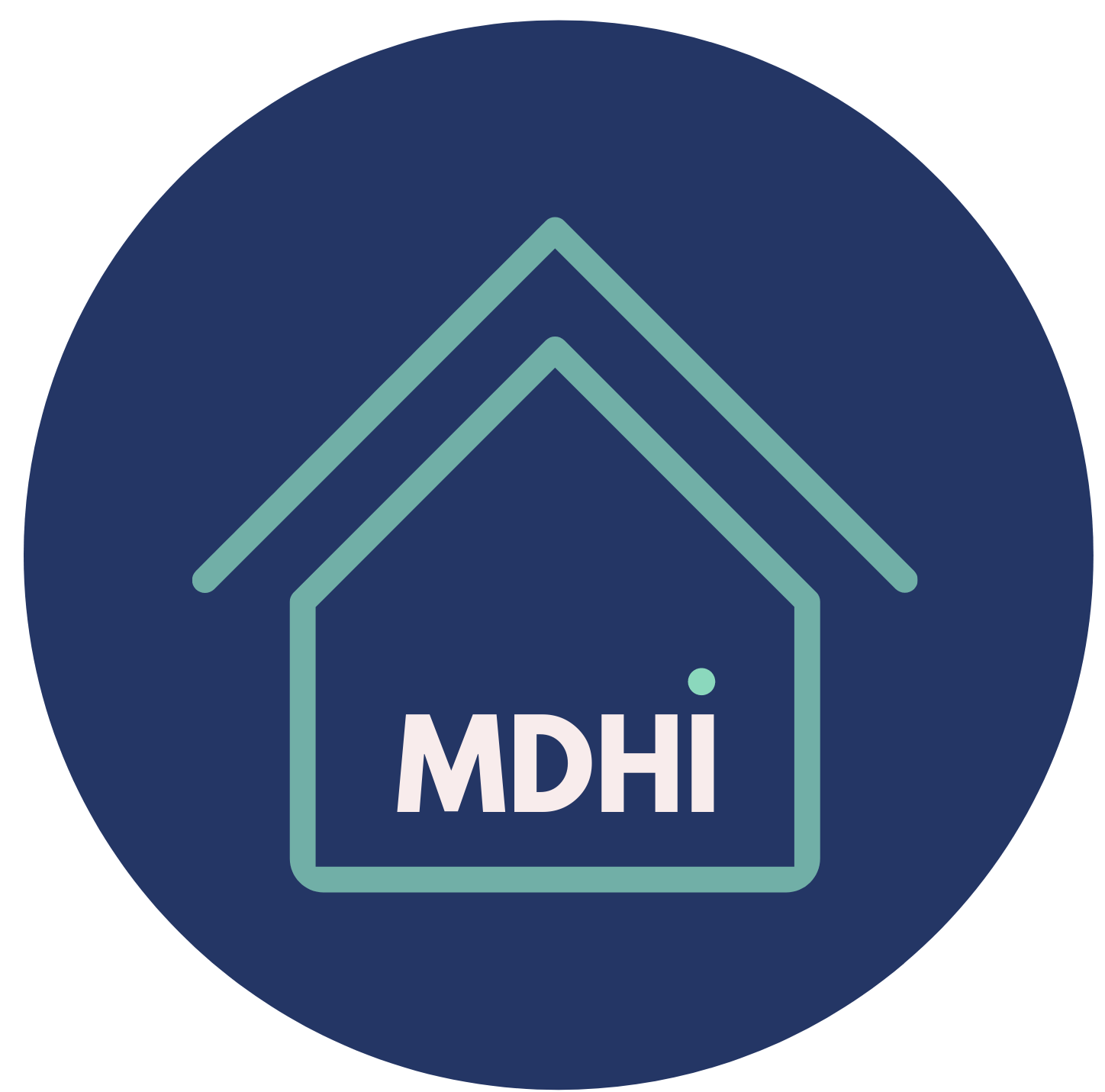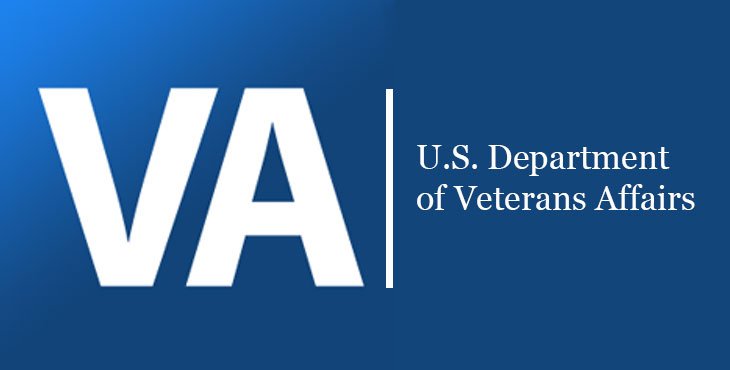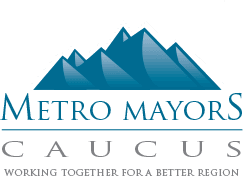Regional Homelessness Updates
We serve Adams, Arapahoe, Boulder, Broomfield, Denver, Douglas, and Jefferson Counties
Categories
All | Coordinated Entry | Funding | HMIS | PIT Count | Press Release | Regional/BFZ | Reports | Training
Why We Need Safe Outdoor Spaces
Safe Outdoor Spaces (SOS) meet our unhoused community’s needs in a way that many emergency shelters cannot. Learn more about why culturally inclusive SOS are effective at housing people experiencing homelessness and how you can support these efforts.
Our unhoused neighbors need to live somewhere while they work to secure permanent housing. Safe Outdoor Spaces (SOS) meet our unhoused community’s needs in a way that many emergency shelters cannot.
Would you want to be separated from your partner or pet during one of the most traumatic and stressful times in your life?
Could you work on improving your mental health while trying to secure housing if you had nowhere to store your belongings during the day?
Would you be able to interview for jobs or apartments if you had nowhere to shower or do laundry?
These are the challenges people experiencing homelessness face. SOS sites offer the stability, security, and supportive services people need to take care of their mental and physical health so they can work on long-term housing solutions.
Why do we need Safe Outdoor Spaces?
Safe Outdoor Spaces (SOS) exist to protect the most vulnerable in our community. There are many reasons people experiencing homelessness don't seek Emergency Shelter:
Separation from partner or pets
Fear of violence or theft
Conflict with hours of operation
Lack of privacy and autonomy
Bedbugs/other health concerns
Doesn't meet their needs
What are Safe Outdoor Spaces?
Safe Outdoor Spaces were created to remove the barriers of traditional Emergency Shelters by providing an alternative that meets people's needs. They allow for:
Couples to remain together
Pets/emotional support animals
Non-congregate living
Stability and safety
24-hour staff support
Case management services
Daily wellness screenings
Culturally inclusive care
SOS sites support the basic needs of our unhoused neighbors by providing:
Bathrooms, hand sinks, showers
Regular meals
Drinking water
Laundry facilities
Security
Sense of community
Electricity
Internet
Access to these services is not only humane but improves the public health of our entire community.
Culturally Inclusive Care
Culturally inclusive care is necessary for the success of Black, Indigenous, People of Color who are disproportionately impacted by homelessness. This means:
Access to traditional ceremonies
Culturally competent programs
Healthy food & holistic medicines
We know this model is not only more humane, but it also gets people housed. 1 in 4 people was connected to housing through the Native-inclusive SOS site.
Be Part of the Change
SOS sites need your support. Constantly moving a tent is traumatic and disorienting. It makes it exceptionally difficult for outreach workers to connect people to permanent housing, and it keeps people unhoused longer.
Educate others on the importance of creating culturally appropriate spaces in your community that meet the needs of our unhoused neighbors. Say "YES" when a nonprofit or government agency makes plans to establish an SOS in your community. Share this article with others in your network who may be skeptical of this person-centered and proven solution for people experiencing homelessness.
Collaborative Application and Priority Listing Posted
As part of this important process, MDHI is posting the final version of our Collaborative Application as well as the Project Priority Listing for this year’s annual CoC NOFO Competition.
Thanks to all of you who provided input to our region's Collaborative Application to HUD! We appreciate you helping strengthen our application to HUD.
As part of this important process, MDHI is posting the final version of this critical application as well as the Project Priority Listing:
We'd greatly appreciate any final input you have before 5 pm on 9/28/2022. Please email any feedback to NOFA@MDHI.org.
Human Trafficking Training 9/23
Join the Laboratory to Combat Human Trafficking in collaboration with the Metro Denver Homeless Initiative for an important training on how human trafficking is impacting Colorado communities.
Join the Laboratory to Combat Human Trafficking in collaboration with the Metro Denver Homeless Initiative for an important training on how human trafficking is impacting Colorado communities. Housing insecurity and homelessness are both root causes of sex and labor trafficking and are used as a form of coercion in trafficking experiences. This training will dive deeper into this intersection and how to recognize trafficking experiences, plug into resources for survivors, or report a trafficking situation.
Coordinating Committee and the Community Design Team (CDT) are merging this month for a special training presented by the Laboratory to Combat Human Trafficking. More information about the training is included below. Here is the login information for our meeting on Friday, 9/23/2022 at 9:00am.
Please use the highlighted link below to add the meeting to your calendar.
Join Zoom Meeting
https://zoom.us/j/96675916451?pwd=SDNJVWtTYUQybWNxVkV3cTdoaWVhUT09
Meeting ID: 966 7591 6451
Passcode: 274772
One tap mobile
+13462487799,,96675916451#,,,,,,0#,,274772# US (Houston)
+16699006833,,96675916451#,,,,,,0#,,274772# US (San Jose)
Dial by your location
+1 346 248 7799 US (Houston)
+1 669 900 6833 US (San Jose)
+1 253 215 8782 US (Tacoma)
+1 312 626 6799 US (Chicago)
+1 929 205 6099 US (New York)
+1 301 715 8592 US (Washington D.C)
Meeting ID: 966 7591 6451
Passcode: 274772
Find your local number: https://zoom.us/u/aeIxbTuc2M
Give Your Input: Unsheltered Plan & CoC Consolidated Application
Speak to what you're doing to strengthen our CoC Consolidated Application and give feedback on our region’s Unsheltered Plan.
Ask 1
Speak to what you're doing to strengthen our Consolidated Application as a region
The Consolidated Application is a part of the Annual CoC NOFO process and strengthens how competitive we are as a region to secure homelessness funding for our CoC. When you fill out this form, you're sharing critical information about the great work happening in our region that we need to have a competitive application. We'd love to have your feedback by 5 pm on September 23. We'll incorporate it into our final plan and post it for review.
THIS SUBMISSION IS CLOSED! Thanks to all who submitted.
Ask 2
Thank you to the 45 partners who submitted content for our region's Unsheltered Plan
This plan aims to capture the amazing work to end homelessness in our community and is a major component of the Special NOFO for Unsheltered Homelessness. A draft plan is now ready for public comment. We value the feedback of people with lived experience, community partners, and all other stakeholder groups and hope you can add your expertise.
Directions and disclaimers can be found on the Unsheltered Plan, which is where you will leave your comments. We'd appreciate your feedback by 5 pm on September 30th so we can craft the final submission to HUD.
THIS SUBMISSION IS CLOSED! Thanks to all who submitted.
Guidance for Emergency Housing Vouchers by County
The Emergency Housing Voucher (EHV) program is available through the American Rescue Plan Act (ARPA). Although most EHVs are already allocated, we have updated guidance for how people experiencing homelessness can access this resource in their county.
What are Emergency Housing Vouchers?
The Emergency Housing Voucher (EHV) program is available through the American Rescue Plan Act (ARPA). Through EHV, HUD is providing 70,000 housing choice vouchers to local Public Housing Authorities (PHAs) in order to assist individuals and families who are:
Homeless
At Risk of Homelessness;
Fleeing or attempting to flee domestic violence, dating violence, sexual assault, stalking or human trafficking;
Recently homeless and for whom providing rental assistance will prevent the family’s homelessness or having a high risk of housing instability (households enrolled in RRH or PSH)
Note: Most EHVs in the Denver Metro Area have already been allocated.
How can I access EHVs?
The Public Housing Authorities (PHAs) that have been allocated EHVs in the Metro Denver Area have established separate local preferences. Please access the PHA’s drop-down information or webpage according to which area you are currently residing.
Aurora Housing Authority (Aurora only of Arapahoe and Adams Counties)
Boulder County Housing Authority (Boulder County)
Boulder Housing Partners (Boulder County)
Colorado Department of Housing (All Metro Denver Counties)
Foothills Regional Housing (Jefferson County)
Maiker Housing Partners (Adams County)
-
The Aurora Housing Authority has partnered with the Metro Denver Contiuum of Care (CoC) lead - Metro Denver Homeless Initiative (MDHI), to allocate the Emergency Housing Vouchers. EHV-Eligible groups are as follows.
The Aurora Housing Authority has given local preferences to the identified groups:
Literally Homeless: MDHI is accepting direct referrals from the Aurora Safe Outdoor Space and Veteran Service organizations.
Fleeing, or attempting to flee, domestic violence, dating violence, sexual assault, stalking or human trafficking: AHA receives referrals directly from Gateway.
Living in housing for formerly homeless people: MDHI is working with Rapid Rehousing (RRH) partners. If you are currently enrolled in RRH program, contact your case manager or RRH Provider to inquire about eligibility for EHV referral.
Aurora Housing Authority is not prioritizing the following EHV-eligible.
At-Risk of Homelessness
-
Coming soon. Thanks for your patience.
-
Boulder County Housing Authority has partnered with the Metro Denver Contiuum of Care (CoC) lead - Metro Denver Homeless Initiative (MDHI), to allocate the Emergency Housing Vouchers. EHV-Eligible groups are as follows.
Boulder County Housing Authority has given local preferences to the identified groups:
Literally Homeless: MDHI is accepting direct referrals from Boulder County Housing and Human Services, Boulder Shelter for the Homeless, TGTHR, Focus Reentry, HOPE for Longmont, Mental Health Partners
Fleeing, or attempting to flee, domestic violence, dating violence, sexual assault, stalking or human trafficking: Boulder County Housing Authority receives direct referrals from Safe Shelter of St Vrain Valley.
Living in housing for formerly homeless people: MDHI is working with Rapid Rehousing (RRH) partners. If you are currently enrolled in RRH program, contact your case manager or RRH Provider to inquire about eligibility for EHV referral.
Boulder County Housing Authority is not prioritizing the following EHV-eligible.
At-Risk of Homelessness
-
Colorado Division of Housing has partnered with the Metro Denver Continuum of Care (CoC) lead - Metro Denver Homeless Initiative (MDHI), to allocate the Emergency Housing Vouchers. EHV-Eligible groups are as follows.
Colorado Division of Housing has given local preferences to the identified groups:
Literally Homeless: MDHI is accepting direct referrals from Colorado Village Collaborative’s Safe Outdoor Spaces, Denver Street Outreach Collaborative, and Denver Case Conferencing.
Fleeing, or attempting to flee, domestic violence, dating violence, sexual assault, stalking or human trafficking: CDOH receives direct referrals from Blue Bench, The Initiative, and Street’s Hope.
Living in housing for formerly homeless people: MDHI is working with Rapid Rehousing (RRH) and Permanent Supportive Housing (PSH) partners. If you are currently enrolled in an RRH or PSH program, contact your case manager, RRH or PSH Provider to inquire about eligibility for EHV referral. Additionally, MDHI is receiving direct referrals from Colorado Coalition for the Homeless for PSH Move-On.
Colorado Division of Housing is not prioritizing the following EHV-eligible.
At-Risk of Homelessness
-
Denver Housing Authority has partnered with the Metro Denver Contiuum of Care (CoC) lead - Metro Denver Homeless Initiative (MDHI), to allocate the Emergency Housing Vouchers. EHV-Eligible groups are as follows.
Denver Housing Authority has given local preferences to the identified groups:
Literally Homeless: MDHI is accepting direct referrals from the Protective Action motel rooms operated by Colorado Coalition for the Homeless, Colorado Village Collaborative’s Safe Outdoor Spaces, Denver Rescue Mission, and The Delores Project
Fleeing, or attempting to flee, domestic violence, dating violence, sexual assault, stalking or human trafficking: Denver Housing Authority receives direct referrals from Rose Andom Center, SafeHouse Denver, and Streets Hope/Voluntad
Living in housing for formerly homeless people: MDHI is working with Rapid Rehousing (RRH) and Permanent Supportive Housing (PSH) partners. If you are currently enrolled in an RRH or PSH program, contact your case manager, RRH or PSH Provider to inquire about eligibility for EHV referral.
Denver Housing Authority is not prioritizing the following EHV-eligible.
At-Risk of Homelessness
-
Foothills Regional Housing Authority has partnered with the Metro Denver Contiuum of Care (CoC) lead - Metro Denver Homeless Initiative (MDHI), to allocate the Emergency Housing Vouchers. EHV-Eligible groups are as follows.
Foothills Regional Housing has given local preferences to the identified groups:
Fleeing, or attempting to flee, domestic violence, dating violence, sexual assault, stalking or human trafficking: Maiker receives direct referrals from Family Tree.
Living in housing for formerly homeless people: MDHI is working with Rapid Rehousing (RRH) partners. If you are currently enrolled in RRH program, contact your case manager or RRH Provider to inquire about eligibility for EHV referral.
Foothills Regional Housing is not prioritizing the following EHV-eligible.
At-Risk of Homelessness
Literally Homeless
-
Maiker Housing Partners has partnered with the Metro Denver Contiuum of Care (CoC) lead - Metro Denver Homeless Initiative (MDHI), to allocate the Emergency Housing Vouchers. EHV-Eligible groups are as follows.
Maiker Housing Partners has given local preferences to the identified groups:
Literally Homeless: To access assessment, please visit either of the following partner agencies that provide direct service: Almost Home and Adams County Community Safety & Well-Being. For a comprehensive list of partner agencies please visit this link.
Fleeing, or attempting to flee, domestic violence, dating violence, sexual assault, stalking or human trafficking: Maiker receives direct referrals from Family Tree.
Living in housing for formerly homeless people: MDHI is working with Rapid Rehousing (RRH) partners. If you are currently enrolled in RRH program, contact your case manager or RRH Provider to inquire about eligibility for EHV referral.
Maiker Housing Partners is not prioritizing the following EHV-eligible.
At-Risk of Homelessness
Metro Denver Learning Session Brings Together Region’s 9 Homelessness Coordination Teams
Learn more about our CoC Aims, how we’re advancing racial equity, historic funding opportunities, and the model that makes ending homelessness possible.
The Metro Denver Learning Session was an in-person event from August 24-25 intended to strengthen our region’s collective response to end homelessness. It was a great opportunity to bring our communities together, hear each other’s progress, expand our networks, celebrate milestones, and strategize next steps. MDHI, Community Solutions, the Dept. of Veterans Affairs, and the State of Colorado convened members from each of the Homeless Coordination Teams (HCT) in Adams, Arapahoe, Aurora, Boulder, Broomfield, Denver, Douglas, Jefferson, and the Tri-Cities. This Learning Session was the first time the nine Homeless Coordination Teams were together in-person. These HCT serve as the liaison between the Built for Zero work and their respective community, aligning their local planning to our region’s homelessness strategy.
We know that homelessness knows no boundaries; it requires a regional approach that centers around local needs and planning. That’s why in March of 2021, MDHI aligned elected officials, community partners, and the broader Metro Denver community around the Built for Zero methodology as the framework for (Sub)Regional Coordination. The objective of the Learning Session was for every sub-region to affirm their local goals and set 6-month Built for Zero milestones for single adults and Veterans, to feel connected to the regional work and their peers across the region, and to identify ways to clear barriers and build support with elected officials and partners.
Regional Progress to Date
MDHI partnered with Built for Zero and the local Veterans Affairs in 2020 to coordinate and design a sub-regional effort to end veteran homelessness. By 2021, we were able to decrease veteran homelessness regionally by 15%.
As of July 2022:
9 out of 9 sub-regions completed and set the baseline for the All Singles Scorecard
7 out of 9 sub-regions have established a Homeless Coordination Team to lead and implement the BFZ work and change the no’s to yes on the Scorecard
4 out of 9 sub-regions have started Case Conferencing off of the By-Name List
1 sub-region has achieved quality data for Veterans
MDHI CoC Aims
By December 31, 2027, MDHI and its partners will:
have quality all singles data in 9 of 9 subregions
have quality data for youth for the region
have quality data for families for the region
have reached functional zero in all subregions for Veterans
have 4 subregions ended homelessness for at least one of the following sub-populations (all singles, chronic singles, families)
Centering Race Equity and Lived Expertise
We acknowledge that there is no roadmap or one-size-fits-all approach when it comes to racial equity work, and that Black, Indigenous, People of Color (BIPOC) and non-BIPOC staff experience the work differently. We understand that community partners and even MDHI staff are at various points of knowing and learning. This work is hard, and it takes time to do it correctly so that we don’t perpetuate more harm.
When it comes to engaging BIPOC and people with lived expertise in our community, we have taken an extremely intentional and empathetic approach. Our Director of Diversity, Equity, and Inclusion began her work by evaluating the current state of the system, both internally and externally, honing in on what we wanted to achieve and making sure we were being inclusive in our decision-making. It is important that our resource allocation matches our priorities and the needs of the community. MDHI is committed to building relationships and trust by meeting people in their community spaces, listening, and following up. We insist on a thoughtful and inclusive approach to our partnerships, engaging people at the beginning of a project rather than asking for feedback at the end. These methods of engagement ensure that BIPOC stakeholders at all levels have system decision-making power to influence the design of the homeless response system.
Here are some other practices underway to advance racial equity at MDHI and in our community:
Hired Sierra Trujillo as the Director of Diversity, Equity, and Inclusion (DEI) in December 2020
Organizational deep dive into Diversity, Equity and Inclusion work
White Supremacy Culture Characteristics - Still Here, BIPOC/white affinity caucus groups, NAEH Racial Equity Learning Series
Reset and revamped Young Adult Leadership Committee
The leadership team completed 10 sessions of empathy coaching for a better understanding of how to support staff in DEI work
Administered an organizational racial equity assessment in Summer 2021, required NOFO grantees to do an organizational racial equity assessment as an unscored piece of their application
Completed organizational pay equity audit
DEI training for both Staff and Board of Directors
Director of DEI is a member of Native American Housing Circle (NAHC) and BFZ Statewide Racial Equity Workgroup
MDHI hired C4 Innovations, a consulting agency dedicated to building racially equitable systems through process improvement, to look deeply at racial inequities in our coordinated entry system. We also formed the Results Academy, a group of community stakeholders including people of color and individuals with lived expertise, to create an action plan for the redesign of coordinated entry.
Historic Funding Opportunities
There are several historic funding opportunities at the state and federal level to support transformational changes in the way our communities address homelessness. We encourage regional collaboration and coordination among our nine sub-regions and partners throughout the state so that we may be strategic about who applies for what funding. We hope that our region uses this funding to advance proven solutions through their Built for Zero work, making homelessness rare and brief with no one left behind. We believe that this work will cement Colorado as a national leader in collaboratively addressing homelessness.
Community partnerships are critical to ensure this legislation is passed if it has not done so already. Here are some of the funding opportunities our community hopes to leverage in this work:
HB22-1304: Grants for Investments in Affordable Housing - $138,000,000. Provides grant funding for Local Governments and Community Partners (Non-Profits). Housing development funding for acquisition, rehab & new construction.
SB22-159: Revolving Loan Fund for Investments in Transformational Affordable Housing - $150,000,000. Loans for Local Governments, For Profit Developers, Community Partners (Non-Profits), or Political Subdivisions made directly by DOH as well as 3rd party lending partners. Eligible for supportive housing investments.
HB22-1377 Grant Program Providing Responses to Homelessness - $105,000,000. Grants for for Local Governments and Community Partners (Non-Profits) to support communities to create proven responses to homelessness that are designed to connect people without stable housing to services, care, and housing.
Housing Development
Direct Assistance
Capacity Building
SB22-1378: Denver-Metro Regional Navigation Campus Grant - $50,000,000. Grant program to build or acquire, and facilitate a regional navigation campus to respond to and prevent homelessness. Available to Local Governments in Denver-Metro Area or a Community Partner (Non-Profit) in conjunction with local governments
Behavioral Health and Recovery-Oriented Services and Treatment
Medical and Dental Care
Shelter, Transitional Housing, and Supportive Housing
Vocational Rehabilitation and Employment Skills Training and Services
Benefits Enrollment
Services for Exiting Residential Facilities or At-risk of Homelessness
SB22-211: Repurpose The Ridge View Campus - $45,000,000. Converting the Ridge View Campus into a recovery-oriented community for individual adults without stable housing who wish to focus on recovery from a substance use disorder will provide low-barrier access to comprehensive care and treatments and will allow people to recover and heal in a safe and stable environment.
Transitional Housing
Continuum of Behavioral Health Services and Treatment
Medical Care
Vocational Training and Skill Development
HB22-1389:Financial Literacy Exchange Program (FLEX) - $60,000. Create the Colorado Financial Literacy and Equity Exchange (FLEX) Program, a voluntary program with the goal of granting financial security through education, employment, investment, housing stability, and social maturity for State Housing Voucher participants.
HB22-1083 Colorado Homeless Contribution Income Tax Credit. Tax expenditure intended to encourage taxpayers to make contributions to approved nonprofits providing certain qualifying activities to leverage financial contributions from Colorado residents and businesses to support providing appropriate housing and services to assist individuals and families experiencing homelessness.
Model for Continuous Improvement
All systems are perfectly designed to get the result they produce. If we are unsatisfied with this product, then we must redesign the system. As part of the Built for Zero methodology, our communities have embraced a model for continuous process improvement known as the PDSA cycle, or Plan Do Study Act. A PDSA mindset to scope and implement improvement projects creates a time-limited test of change to a community’s system; is specific, actionable, and measurable; involves testing one or multiple change ideas; quickly confirms a team’s thinking or leads them to pivot; applies to a system, not a one-time event; keeps teams from getting stuck; and uses scarce resources wisely. We learn more from doing than from planning, but only if we reduce our resistance towards change and growth.
The Model for Improvement states that solving complex problems starts with a measurable end state and works backward. Strategies and activity come last and must shift repeatedly in service of the aim.
We should always ask first: What are we trying to accomplish? This is our aim. Second, what changes can we make that will result in improvement? Third, how will we know that a change is an improvement?
It’s important that the thinking part happens before the doing part, so we can tailor our strategies and actions to get as close to our aim as possible.
This Model for Improvement:
Is applicable to all types of organizations.
Is applicable to all groups and levels in an organization and community.
Facilitates the use of teamwork to make improvements.
Provides a framework for the application of statistical tools and improvement methods.
Encourages planning to be based on theory.
Emphasizes and encourages the iterative learning process.
Provides a way to empower people in the organization to take action.
This event was sponsored by:
Boulder County First in Metro Region to Achieve Quality Data for All Singles
Boulder County is the first of Metro Denver’s nine sub-regions to achieve Quality Data. Learn more about this important milestone and what it means for ending homelessness in this community.
Boulder County is the first of Metro Denver’s nine sub-regions to achieve Quality Data for all singles, a necessary milestone for reaching a functional end to Veteran homelessness (and eventually all homelessness). Quality Data means we can account for every single adult experiencing homelessness by name, in real-time. This Quality By-Name List (BNL) helps us understand the scope of homelessness in Boulder County, describes the inflow and outflow on an ongoing basis, gives us accurate information to reduce homelessness, and helps us measure our progress towards ending it. Boulder achieved the perfect Scorecard needed to reach Quality Data for all singles at the end of June 2022 and was officially certified the following July. Community Solutions certified the data over a 3-month reporting period, assuring that Boulder has maintained 100% data reliability through July 2022.
“This is an incredible milestone for our region and proof that quality data is possible.”
When a community has the data to make informed decisions, homelessness becomes a solvable problem. With quality data, Boulder can now track changes in the composition and dynamics of those experiencing homelessness needed to identify gaps, test changes, and prioritize resources. It means Boulder can start working towards Functional Zero for Veterans before moving on to all single adults. Functional Zero is a measurable end to homelessness where it becomes rare, brief, and nonrecurring. Veteran Case Conferencing, which began in July, is an important part of this process. Case Conferencing offers a routine, centralized meeting space to support resource coordination and problem-solving among the various community partners serving people experiencing homelessness. Boulder is also excited for the Veteran’s Community Project to complete its tiny home project, which will act as a shelter for unhoused Veterans in the community. They hope to achieve functional zero for Veterans in their sub-region by January 31,2023 before moving onto other subpopulations (youth, families, chronically homeless).
“Reaching this milestone means that we know who is experiencing homelessness in our community and can leverage our partnerships, resources, and regional expertise to ensure that homelessness is rare and brief. We look forward to reaching the next milestone: Functional Zero.”
Built for Zero was developed by Community Solutions, which supports over 100 communities across the country working to measurably and equitably end homelessness using a data-driven approach. The Metro Denver Homeless Initiative officially launched the Built for Zero framework for Regional Coordination across the nine sub-regions in March 2021. Local ownership has been at the core of our regional approach. When we align around a common aim - functional zero for Veterans - it becomes more about supporting each community’s needs rather than telling them what to do. We have been very supportive of securely sharing data between systems and collaborating across Continuums of Care, Veterans Affairs agencies, and county lines.
“A major factor in the success of Boulder has been the collaboration within the sub-region. As I started working within Boulder County last year, I quickly realized there was a lot of great work already happening. My goal as Improvement Advisor was to figure out how to embed the Built for Zero Framework into what was already happening, so it didn’t feel like a separate initiative.”
We want to sincerely thank everyone in Boulder who worked so hard to make this possible, including but not limited to: Heidi Grove (Homeless Solutions for Boulder County, Boulder Sub-Regional Lead), Boulder County Outreach Collaborative, Homeless service providers in Boulder County, members of the Boulder Homeless Coordination Team, Veterans Affairs, Veterans Community Project, Sofia Vigil (Improvement Advisor), Homeless Solutions for Boulder County Executive Board, the direct service staff, and our elected partners.
Annual CoC Notice of Funding Opportunity (NOFO) for the Fiscal Year (FY) 2022 Released
The Dept. of Housing and Urban Development (HUD) has officially posted the Notice of Funding Opportunity (NOFO) for the Fiscal Year (FY) 2022 Continuum of Care Competition on Grants.gov.
The Dept. of Housing and Urban Development (HUD) has officially posted the Notice of Funding Opportunity (NOFO) for the Fiscal Year (FY) 2022 Continuum of Care Competition on Grants.gov.
Applicant Timeline
Review the NOFO Grantee Presentation for more information
Letters of Intent due August 17
Applications due in e-snaps by August 29
Fill out this form to give feedback on our Consolidated Application by September 23
MDHI submits Collaborative Application by September 30
Types of Applicants
Returning project applicants may choose to import FY 2021 renewal project application responses; however, this must be requested during your registration of the Renewal Funding Opportunity in e-snaps and is only available if you submitted a project application in the FY 2021 CoC Program Competition. Imported responses must be carefully reviewed to ensure accuracy.
Projects renewing for the first time, that were previously awarded prior to the FY 2021 CoC Program Competition must complete the entire renewal project application.
New project applications must be completed in full and in accordance with the new project application components permitted in this year’s Competition.
Additional Guidance
The following additional guidance will be posted on the CoC Program Competition page of HUD’s website between August 1, 2022 and August 22, 2022:
FY 2022 CoC Estimated ARD Reports
Detailed Instructions
CoC Application
CoC Priority Listing
Project Applications – all types
Navigational Guides
Accessing the Project Application
New Project Application
Renewal Project Application
UFA Costs Project Application
Planning Costs Project Application
CoC Priority Listing
Questions
Questions regarding the FY 2022 CoC Program Competition process must be submitted to CoCNOFO@hud.gov.
Questions related to e-snaps functionality (e.g., password lockout, access to user’s application account, updating Applicant Profile) must be submitted to e-snaps@hud.gov.
You can also contact MDHI at nofa@mdhi.org.
Special NOFO for Unsheltered Homelessness
More on who can apply, what projects are eligible, what costs are eligible, and what happens next. You can also help create our Regional Unsheltered Plan by clicking on the link below and completing the form. Responses are due August 19th.
Timeline
August 12th: Letters of Intent Due
August 19th: Unsheltered Plan Feedback Due
September 16th: Project applications submitted to CoC
September 30th: Feedback due on our region’s Unsheltered Plan
October 5th: CoC notifies project applicants about whether their application will be accepted and ranked, rejected, or reduced
October 18th: CoC posts online all parts of the Special NOFO Consolidated Application for public viewing
October 20th: Submission Deadline
We are excited to announce that the Department of Housing and Urban Development (HUD) has released a special Notice of Funding Opportunity (NOFO) that includes $365 million in grant funds and housing vouchers to enhance our communities’ capacity to address unsheltered homelessness by connecting vulnerable individuals and families to housing, health care, and supportive services. This will fund up to $13 million in new projects that address unsheltered homelessness across Metro Denver. Read the full HUD Notice.
Special Unsheltered NOFO Webinar - View the Slides (PDF)
On 9/12/2022 MDHI released a draft version of the plan for public comment which can be found here: Metro Denver Unsheltered Plan for Public Comment
Please be sure to read the introductory comments that provide more context.
Who can apply?
All first-time CoC applicants will need to create an account in e-snaps. Please visit the CoC Program Applications and Grants Management System on the HUD Exchange for assistance navigating e-snaps. Current CoC or ESG-funded projects are not eligible to apply for this NOFO.
What projects are eligible?
Permanent Supportive Housing (PH-PSH), Permanent Housing – Rapid Re-housing (PH-RRH), Joint TH and PH-RRH, and Supportive Service Only (Coordinated Entry, Street Outreach, Standalone)
What costs are eligible?
Please read the HUD notice for eligible costs and threshold requirements.
Next steps?
Register to attend our upcoming MDHI webinar hosted on August 4, 2022 from 1-2 pm. You can also help create our Regional Unsheltered Plan by completing this form. Responses are due August 19th.
Where can I find the Metro Denver Plan?
Here is a link to the requirements for the Unsheltered Plan, which accounts for 70 points for this competition. MDHI is working with partners to complete this plan. All submissions should align with these requirements.
Additional Resources
First Phase of Annual Homelessness Count Released
The Metro Denver Homeless Initiative (MDHI) released the preliminary first phase of the 2022 annual Point-in-Time (PIT) count data. The count captures homelessness nationally on a single night in January and showed an overall increase of 784 individuals regionally from pre-pandemic levels.
The preliminary first phase of data for the annual Point-in-Time count shows increase in overall homelessness on a single night from pre-pandemic levels.
[Denver, CO – July 20, 2022]: The Metro Denver Homeless Initiative (MDHI) released the preliminary first phase of the 2022 annual Point-in-Time (PIT) count data. The count captures homelessness nationally on a single night in January and showed an overall increase of 784 individuals regionally from pre-pandemic levels.
“We are awaiting HUD’s verification of the region’s demographic data before releasing further information, but for planning purposes, it is important to share the overall sheltered and unsheltered count for the region,” said Dr. Jamie Rife, MDHI’s Executive Director. MDHI will release a second phase of data once HUD’s verification process is completed later this summer.
The count occurred on Monday, January 24, 2022, and included both those staying in shelter and outdoors. Due to COVID-19 safety concerns, the region did not conduct a count of individuals staying outdoors in 2021. In January 2020, approximately six weeks before the beginning of the pandemic and the last time a comprehensive PIT was conducted, there were 6,104 people counted experiencing homelessness. This year, 6,888 people were counted, or a 12.8% increase. For those staying in shelter, the number remained fairly consistent between 2020 and 2022 with 4,534 and 4,815 respectively. Unsheltered homelessness increased regionally, with pre-pandemic levels in 2020 at 1,561 and this year’s count locating 2,073 individuals staying outdoors.
“The Point-in-Time is a snapshot of homelessness on a single night with numerous variables such as weather, count participation, volunteer engagement, and a variety of other factors,” shared Rife. “While this count can help us understand homelessness on a single night, getting to a place where we have comprehensive, real-time data regionally is the ultimate goal,” she added.
The region has made significant strides in decreasing its reliance on the one-night count. Instead, providers, municipalities, and others are working together to improve participation with the region’s Homeless Management Information System (HMIS) to make data accessible each day on those experiencing homelessness. Outreach teams across the seven-county metro-Denver region increased HMIS usage in 2022 to help create a more real-time understanding on those staying outdoors as well as assist in connecting clients to services and housing.
“While the region was able to locate and count 6,888 individuals on a single night experiencing homelessness, the HMIS allows us to see this number is closer 31,000 throughout the course of the year,” said Rife. “This data highlights the dynamic nature of homelessness and the importance of real-time data to allow the region to coordinate effectively and allocate resources efficiently.” MDHI releases annually the State of Homelessness report with these numbers.
Boulder Completes Quality Scorecard, on Track for Quality Data
Boulder County is the first of the nine sub-regions to complete a Quality Scorecard for all single adults experiencing homelessness.
Boulder County is the first of the nine sub-regions to complete a Quality Scorecard for all single adults experiencing homelessness. The Scorecard is a list of questions that provide guidance on how to develop a By-Name List for all homeless, single adults in each sub-region and helps us assess whether the data is of sufficient quality to measure progress toward ending homelessness. This tool was developed by Community Solutions as part of their Built for Zero (BFZ) methodology to end homelessness, which was officially adopted as Metro Denver’s approach to Regional Coordination on homelessness in March 2021.
Each Scorecard consists of 13 questions that ensure each community’s infrastructure has a racially equitable lens and is able to capture everyone experiencing homelessness, beginning with Veterans and single adults. The Boulder team will use this Scorecard to verify ‘Quality Data’ for Veterans using four months of historical data. Boulder continues to stand up its Veteran case conferencing while working on achieving Quality Data for all single adults.
This represents a key step toward achieving a Quality By-Name List for Veterans, enabling teams to account for every person experiencing homelessness in real-time. While Boulder’s work began with Veterans, their Scorecard has expanded to capture all single adults beginning October 2022. These efforts are led by Homeless Solutions for Boulder County (HSBC), the Metro Denver Homeless Initiative (MDHI), and Community Solutions (CS).
HUD Announces First-Ever Funding Opportunity to Address Unsheltered Homelessness
The $365 million package includes grant funds along with housing vouchers that will enhance communities’ capacity to address unsheltered homelessness by connecting vulnerable individuals and families to housing, health care, and supportive services.
“We have a responsibility to ensure that people sleeping in their vehicles, in tents, or on the streets, including in rural areas, have access to decent, stable housing and services, like health care and treatment, to live with dignity and safety.” - Secretary Marcia L. Fudge, Department of Housing and Urban Development (HUD)
The $365 million package includes grant funds along with housing vouchers that will enhance communities’ capacity to address unsheltered homelessness by connecting vulnerable individuals and families to housing, health care, and supportive services.
$322 million will be awarded to Continuum of Care (CoC) Programs through a Special Notice of Funding Opportunity to fund homeless outreach, permanent housing, supportive services, and other costs associated with a community’s approach to solving unsheltered homelessness. Grant terms last three years and are eligible for renewal under the CoC program competition.
$43 million will fund approximately 4,000 new incremental vouchers. These will be allocated via a separate notice to public housing authorities with a priority to those that participate in a comprehensive community approach to solving homelessness. These vouchers can serve households experiencing or at-risk of homelessness; those fleeing or attempting to flee domestic violence, dating violence, sexual assault, and stalking; and veterans and families that include a veteran family member that meets one of the proceeding criteria.
Housed Data: OneHome Coordinated Entry 2021
The following data represents the number of clients housed through OneHome Coordinated Entry in 2021. Thank you to all of our partners who participate in this process; your continued support and collaboration make this possible.
The following data represents the number of clients housed through OneHome Coordinated Entry in 2021. This does not include individuals housed through the Housing Stability Flexible Fund. Thank you to all of our partners who participate in this process; your continued support and collaboration make this possible.
Key Takeaways from the 2nd Regional Convening on Homelessness
On April 5, 2022, leaders from across the state gathered to support the ‘Built for Zero’ framework for ending homelessness.
On April 5, 2022, leaders from across the state gathered to support the ‘Built for Zero’ framework for ending homelessness. This year’s convening focused on the regional and local progress made towards ending veteran homelessness, as well as opportunities for collaboration and lasting change. This event was sponsored by MDHI, Community Solutions, the Metro Mayor’s Caucus, Veterans Affairs, Metro Area County Commissioners, and the CO Division of Housing.
“I called HUD VASH again and they told me to go to the Beacon house. So I went to the Beacon house and I asked them if they could let me stay there for a couple weeks until my apartment was ready. They said ‘yes, that’s what we do.’ It’s kind of a cliché. You know, you guys always say ‘that’s what we do.’ And I believe that now. You guys do an excellent job.”
Built for Zero – The Framework
When we approach homelessness as a solvable issue, we shift from attempting to manage the problem to creating a system that ensures homelessness is a rare, brief, and one-time occurrence. Built for Zero is an operating system that aligns quality, real-time data, local planning, and regional coordination around a shared, measurable aim: ending homelessness. This end is measured by ‘functional zero,’ which happens when a community is housing more people than the number of actively homeless per month.
Metro Denver’s Subregional Approach
“In order for us to be successful we have to absolutely acknowledge that this is a regional issue that no city or county can resolve the enormous challenge of homelessness that is the most complex public policy issue any of us will ever face alone. So I am grateful that we have been able to come together and make the progress under this framework together. Let me simply say thank you to all of our regional partners for leaning in. I’m excited about the opportunities that are in front of us because of our regional collaboration… I’m grateful and I’m absolutely energized by our collaboration and by the progress that’s being made under the Built for Zero framework. ”
MDHI is coordinating the Built for Zero work as the region’s Continuum of Care. However, our regional strategy relies heavily on local planning in order to meet the diverse needs of each community. These subregions include the seven counties (Adams, Arapahoe, Boulder, Broomfield, Denver, Douglas, Jefferson), the Tri-Cities (Englewood, Sheridan, Littleton), and Aurora.
Each subregion is working on the following steps to achieve functional zero:
Complete the BFZ Scorecard
Create a Local Structure (with Veteran Case Conferencing)
Finalize the Veteran By-Name List
Assure Quality Data
House More Vets than on the By-Name List = Functional Zero
Move onto Another Subpopulation
This approach is working! In fact, while all other types of homelessness have increased due to the economic impact of COVID-19, Veteran homelessness has decreased by over 15% since the beginning of 2021. This is encouraging news. Our region is at a point where we know Veterans experiencing homelessness by name and are working to meet their individual housing and stability needs. Some communities, sparked by this momentum, have already begun applying this framework to other subpopulations, such as chronically homeless individuals, families, and youth.
Proposed Homelessness Initiatives
Metro Denver’s strategy requires a robust continuum of response to meet the diverse needs of people experiencing homelessness. The State of Colorado is focused on supporting communities in creating this continuum of proven solutions designed to connect people without stable housing to supportive services, behavioral health, medical care, and housing. The Governor’s budget submission requests $200M from the $700M Economic Development and Relief Funds for community investments in homelessness response. These proposals include:
-
Support investments in community-based continuum of services and supports for people at risk of or experiencing homelessness with complex needs (including behavioral health needs), including: Emergency shelters, Transitional housing, Recovery care and related residential programs, Permanent housing with wrap-around services
Grants will be issued for innovative programs that meet the needs of individuals experiencing or at risk of homelessness. Collaborative partnerships with matching funds from local governments, philanthropy, and private partners are expected.
-
Similar to the Fort Lyon and proposed Ridge View supportive community models, a Denver-area supportive residential regional campus that leverages additional resources and integrates a continuum of services and supports to address physical and behavioral health while provided safe space for recovery
-
Ridge View Youth Services Center is a high quality state owned asset
Provides opportunity to expand upon lessons learned at Fort Lyon Supportive Residential Community in Bent County
Goal is to Invest in a supportive community model that integrates a continuum of recovery oriented services and care (e.g. detox/withdrawal supports), transitional housing, vocational rehabilitation, and oral, physical, and behavioral health services
-
Why:
Data to understand the need and whether we are reducing the number of people experiencing homelessness.
Understanding who is experiencing homelessness and what their needs and barriers are is critical to informing strategies and creating an efficient coordination of resources.
Aim:
Increase capacity across the state to locate, identify, and engage anyone living unsheltered
Increase capacity to improve the data collection of that effort as well as data from homeless programs
Together, these efforts will enhance our collective and accurate knowledge of who is experiencing homelessness and be that bridge to connecting the services and housing.
How:
Fund community-based organizations to hire outreach staff who coordinate with existing efforts that engage people living unsheltered. They will ensure an accurate list is created and engage individuals to assess needs to connect to care and housing.
Fund the Continuum of Care entities to increase Homeless Management Information System utilization.
The American Rescue Plan Act of 2021 (ARPA) also created an additional $1.3 billion of funding for Colorado to improve access to affordable housing and supportive services for people that were disproportionately impacted by COVID.
-
Gap financing (5-7.5%)
Maintain existing affordable housing (4.5-6.5%)
Governor’s priority: Green Energy for AH
-
Gap financing (5-7.5%)
Maintain existing affordable housing (4.5-6.5%)
Sustainable rental assistance (4-6%)
Governor’s priority: Strong Communities
Governor’s priority: Green Energy for AH
-
-
-
Behavioral Health Transformational Task Force and Task Force on Economic Recovery Relief Cash Fund may provide $254M
-
In combination with Governor’s priority: Innovative Housing Incentive Program
-
Policy Recommendations
Creating a well-funded, data-driven homeless response system is simply not enough. Our region needs comprehensive legislation to address the lack of accessible affordable housing so we can treat this problem at the source.
The following Bills are being considered by the House and Senate in this legislative session to address homelessness and affordable housing:
HB1304 - State Grants Investments Local Affordable Housing
SB159 - Revolving Loan Fund Invest Affordable Housing
SB146 - Middle Income Access Program Expansion
HB1282 - Innovative Housing Incentive Program
HB1051 - Modify Affordable Housing Tax Credit
SB160 - Loan Program Resident Owned Communities
HB1083 –Colorado Homeless Contribution Tax Credit
The 2022 Pledge for Elected Officials
“Knowing that issues facing our region do not recognize county lines or city lines, it’s important that our work is collaborative to help address housing, transportation, poverty, and economic development. This year the Metro Area County Commissioners have decided to focus our efforts on identifying regional strategies to support our neighbors that are experiencing homelessness.”
We ask our state and local elected officials to sign this pledge and maximize our region’s progress toward ending homelessness.
In metro Denver, we have a shared goal of making homelessness, rare, brief, and non-recurring. We understand that there are many paths to homelessness including high housing prices, stagnant wages, domestic violence, disability, chronic conditions, and mental and behavioral health challenges. We are committed to addressing these core issues in an equitable manner to ensure that homelessness is not a destination, but rather a low point on the path toward a better future. To this end, we pledge to work together and exercise leadership to:
Build on our success from year one of Built for Zero which reduced veteran homelessness by 15% despite rising rates of homelessness nationwide;
Use the shared Homeless Management Information System or “HMIS” database that enables us to better serve our neighbors experiencing homelessness regardless of their location in the region;
Tailor our interventions and methods to reflect peer-reviewed best practices;
Collaborate regionally to maximize our investments in housing, treatment, and other critical resources.
Join Our Board, Make An Impact
Our Board is recruiting diverse candidates for the term beginning July 1, 2022. Applications are due April 25th.
Our Board is seeking new members to help us shape the future of MDHI. Applicants with diverse professional, educational, ethnic, racial, gender, and socioeconomic identities are encouraged to apply, as well as people with lived experience of homelessness or housing instability. You must live in the seven-county Metro-Denver area (Adams, Arapahoe, Boulder Broomfield, Denver, Douglas, and Jefferson Counties) and have a passion for addressing homelessness in your community.
Metro Denver Homeless Initiative’s mission is leading and advancing collaboration to end homelessness in our region. The role of MDHI is to provide data, support, and coordination on the issue of homelessness and housing instability. The Board is critical in shaping the policies and strategy for MDHI as both a nonprofit and a Continuum of Care.
We are currently accepting Board applications for the term beginning July 1, 2022. Applications are due April 25th and can be found here. The Board meets on the 2nd Tuesday of the month from 5:30-7:30 pm.
To learn more about our Board, visit our Board page. Please email any questions to info@mdhi.org.
2022 Regional Convening on Homelessness
Please join us on April 5th from 8:30-10:00 AM MST for the 2022 Regional Convening on Homelessness! Learn more about what our region’s accomplished and the work that still needs to be done.
2021 Regional Convening on Homelessness
Last year on March 18, MDHI coordinated the Regional Convening on Homelessness with key leaders from across the state to harness our collective influence, learning, and efforts to drive reductions in homelessness together. This convening sought to align the local efforts of mayors, county commissioners, city council members, and city managers from the seven-county metro-Denver region, along with our private sector, regional, and national partners.
A lot of progress has been made since we launched our Regional Coordination strategy. Since then, the nine subregions have been working diligently to establish the Built for Zero framework in their local communities, starting with Veteran homelessness. This approach is working! In fact, while all other types of homelessness have increased due to the economic impact of COVID-19, Veteran homelessness has decreased by over 15% since the beginning of 2021.
This is encouraging news. Some communities, sparked by this momentum, have already begun applying this framework to other subpopulations, such as chronically homeless individuals, families, and youth. Our region is at a point where we know Veterans experiencing homelessness by name and are working to meet their individual housing and stability needs. It’s now time to take our Regional Coordination strategy to the next level.
2022 Regional Convening on Homelessness
Please join us on April 5th from 8:30-10:00 AM MST for the 2022 Regional Convening on Homelessness! The event be live-streamed on Facebook and later posted on Youtube.
Here's what to expect at the second Regional Convening:
Update on the State of Homelessness in the region
Overview of the Built for Zero framework, celebrating the milestones and success in our region
Progress on your community's Built for Zero Scorecard
Analysis on where gaps and challenges still exist locally
Call to action for you to support this work
Brought to you by:
Flex Fund Updates
With your help, Flex Fund was able to assist 286 households with $428,597 in landlord mitigation, move-in, and prevention assistance in 2021. Learn more about our success, as well as changes to our 2022 Policies & Procedures.
With your help, MDHI’s Flex Fund was able to assist 286 households with $428,597 in landlord mitigation, move-in, and prevention assistance in 2021. This is huge, and we could not have done it without continued support from our donors and participating agencies.
We want to alert you of some upcoming changes to MDHI’s Flex Fund for the new year. Interested and participating agencies should review the updated MDHI Flex Fund Policies and Procedures 2022 to remain up to date on our latest procedures and eligible costs. These changes will go into effect on February 1st, 2022.
Please do not hesitate to reach out with any questions. Thank you for the work you do!
Elizabeth Harms
Housing Stability Coordinator
Annual ‘State of Homelessness’ Report Released
Read the 2nd Annual State of Homelessness Report released January 20, 2022.
MDHI Releases Second State of Homelessness Report
DENVER, COLORADO – January 20, 2022 – The Metro Denver Homeless Initiative (MDHI) released its second annual State of Homelessness report today, highlighting new data in the region related to homelessness.
The report, for the second year in a row, demonstrates the overall issue of homelessness across multiple sources including the region’s Homeless Management Information System (HMIS), the 2021 Point in Time (PIT) count for those staying in shelter, as well as school district data on students experiencing homelessness.
The HMIS showed 32,233 individuals accessed services related to homelessness between July 1, 2020, and June 30, 2021. Additionally, there is data from the HMIS on those staying outdoors or other places not meant for human habitation, commonly referred to as unsheltered.
Consistent in this year’s report as compared to last year is the overrepresentation of BIPOC individuals in the population of those experiencing homelessness. “While there are differences in counts and definitions across the data sources, one thing remains glaringly consistent – racial inequity,” stated Jamie Rife, Director of Communications and Development at MDHI who will be filling the organization’s Executive Director role on February 1.
Also included in this year’s report is further information on the region’s unsheltered population. Over the course of a year, 10,870 adults, 1,031 members of families, and 954 youth engaged in services while staying in an unsheltered location. “For the first time, our region is beginning to get more real-time data, including on those staying outdoors,” said Rife. “While the last full Point in Time count in 2020 showed 1,561 individuals staying in an unsheltered location, what we see now is that over the course of a year, this number is 12,855.”
In 2020, the last time a full Point in Time (PIT) count was conducted due to safety concerns related to COVID, it identified 6,104 people experiencing homelessness on a single night. The 2022 PIT is scheduled for Monday, January 24 and will include a full count of both those staying in shelter and those staying in unsheltered locations.
Also included in the report are implications as well as information on successes in the region. “While homelessness continues to climb for many, the region has seen a 15% decrease in the number of veterans experiencing homelessness, in part due to the regional coordination and the incredible work done by providers in our region, as well as the enhanced resources available,” added Rife. “This is proof of the strides we can make when we work together and have more housing and services available for those experiencing homelessness.”
MDHI Names New Executive Director
Dr. Jamie Rife named next Executive Director, beginning February 1, 2022.
Dr. Jamie Rife to Serve as Next Executive Director
DENVER, COLORADO – January 10, 2022 – The board of directors of the Metro Denver Homeless Initiative (MDHI) announced today that Dr. Jamie Rife has been selected to serve as the organization’s next Executive Director.
After launching a national search in September of 2021, the board of directors of MDHI announced today it has selected Dr. Jamie Rife, who currently serves as the organization’s Director of Communications and Development, to be the next Executive Director.
The interview and selection process spanned several months and included input and feedback from community stakeholders, partners, and staff. “We had an incredibly talented pool of candidates from across the country,” said Mike Malloy, Board President. “Ultimately, we felt Dr. Rife was the best candidate not only for MDHI as an organization but for the work to end homelessness across our region,” he added.
Dr. Rife has served as the organization’s Director of Communications and Development since February of 2020. Previously, she spent over 15 years in public education where most recently she served as the State Coordinator for the Education of Homeless Children and Youth at the Colorado Department of Education. Dr. Rife conducts research on poverty and homelessness and is the co-author of the book “Journeys out of Homelessness: The Voices of Lived Experience.”
“We look forward to the knowledge, experience, and vision Dr. Rife will bring to the organization,” said Malloy. Dr. Rife will begin this new position on February 1, 2022.
2022 Point in Time Information
The 2022 Point in Time count is the evening of Monday, January 24th. Find out how the 2022 Point in Time will occur and which portions of the region are currently seeking volunteers.
The 2022 Point in Time Count will take place the evening of January 24 (into the morning of January 25). The following is how the region will successfully complete this year’s count.
Volunteer Opportunities
Due to different portions of the region being under different and unique COVID-19 protocols, the local planning teams in each of the regions (Adams, Arapahoe, Boulder, Broomfield, Denver, Douglas, Jefferson Counties and the City of Aurora) will determine the volunteer recruitment and signup process. As these are determined, information, by community, will be posted below.
All volunteers will be required to attend a virtual training to participate in the Point in Time. At the end of the training, each volunteer will certify they have taken the training as required by HUD. Each county plus Aurora will have additional information, including local COVID protocols, to provide for volunteers to safely and effectively conduct the count
Link to Maps:
Maps for Count - Census Tracts
Here is the current information available by community on how YOU can get involved:
Adams County Community Safety & Well-Being is seeking volunteers to help with the 2022 PIT Count, held on January 24th, 2022. During this one day census count, volunteers will interview persons experiencing homelessness using a standardized app-based survey that's designed for easy access on your smart phone. The PIT is critically important to understanding the needs and characteristics of unhoused residents in Adams County and the larger metro region. We can't collect this important data without the help of community volunteers! Please complete this form if you would like to volunteer. Contact Heather McClure hmcclure@adcogov.org (720) 523-6942 if you have any questions. Thank you! Please visit here to learn more and sign up.
Arapahoe:
Boulder:
Broomfield:
As many of you know, the annual Point-in-Time (PIT) count will take place through the week of Jan. 24, with emphasis on an observational count across the city at the beginning of the week (4 - 10 a.m. on Tuesday, Jan. 25). The observational portion of the count requires the strongest support from staff, partners, and volunteers.
Register HERE for Denver’s Count!
Douglas:
WHEN: The 2022 PIT Count begins on Mon., January 24th and continues for 24 hours, through Tues., January 25th. We have four different shift options.
WHERE: Volunteers will be deployed throughout Jeffco based on the geographic preference selected on the registration form.
Contact kbarker@jeffco.us with questions!
Register HERE for Jeffco’s Count!
City of Aurora:
Background on the Point In Time (PIT)
In 2021, the Metro Denver Continuum of Care applied for and received a waiver from HUD. This allowed the region, due to safety concerns related to the COVID-19 pandemic, to not count those staying in unsheltered (outdoors, other places not meant for human habitation) situations. A full sheltered (safe haven, transitional housing, and emergency shelter) count was conducted in 2021.
For 2022, the following protocols will be followed:
Sheltered Count
Similarly to 2021, the region will count the number of people staying in safe haven, transitional housing, and emergency shelter on the overnight of January 24th. This data is collected either via the region’s Homeless Management Information System (HMIS), for those that use HMIS, or via a mobile survey from staff at those agencies that do not currently use HMIS. For those using HMIS, this data will be pulled from the system on January 25th for those staying in shelter the night before (the overnight of January 24th).
Unsheltered Count
Given the historic conditions under which this count is being conducted, each of the seven counties in the region plus the City of Aurora will be choosing one of the two following approaches to conduct the count that best fits the needs and current conditions of their community:
Full Census Day of Count: In this approach, the community will seek to count and complete a full demographic survey (census) of everyone experiencing unsheltered homelessness in approximately a 24-hour period beginning the evening of the 24th into the 25th to determine where people were sleeping on the night of the 24th. This approach is suggested for communities with small to medium populations of those experiencing homelessness.
Full Observation and Sampling: In this approach, the community will seek to count visually all those experiencing unsheltered homelessness in a 4-8 hour window sometime between sundown on the 24th and morning of the 25th. In the week or so following the 25th, the community will collect a representative sample using the same survey as the Full Census of those experiencing homelessness to determine demographic information. Results from this representative sample will then be imputed and extrapolated to determine the full demographics of those experiencing homelessness in the community. This approach is suggested for those communities with medium to large populations of those experiencing homelessness.
MDHI received this update from HUD on January 10, 2022.
Thank you for your tireless work to protect people experiencing homelessness from COVID and working to prevent and end homelessness. Some CoCs have asked us about the status of the 2022 Point-in-Time (PIT) Count and Housing Inventory Count (HIC). We do not plan to cancel or postpone the 2022 HIC and PIT count. We recognize that in some communities, COVID is causing severe challenges with implementing an unsheltered PIT count. Please review the safety guidance posted on HUD.gov.
